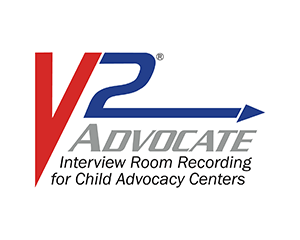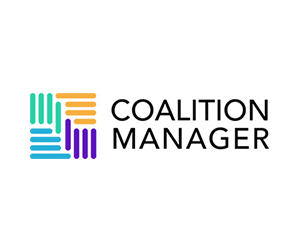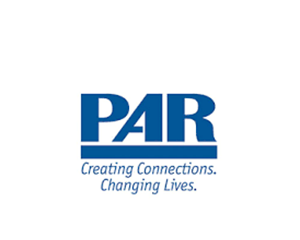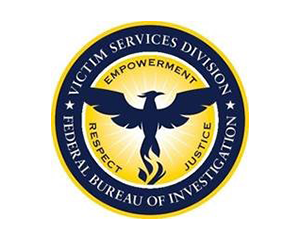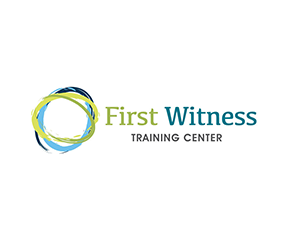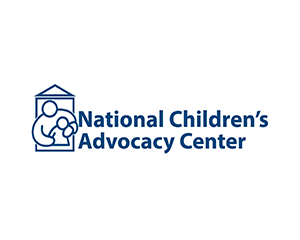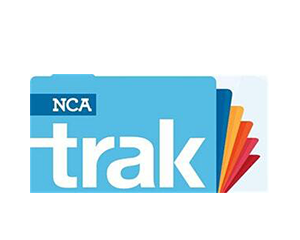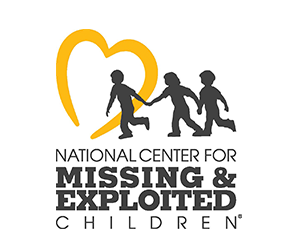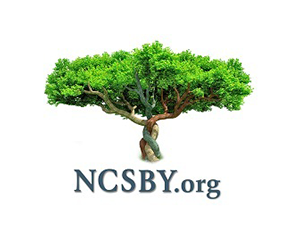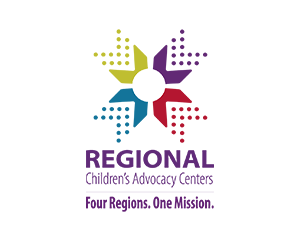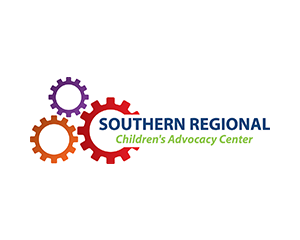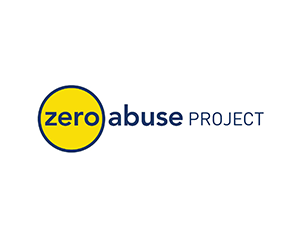
Tuesday, June 7, 2022
Accessing Workshops & Livestream Sessions
Please note, all workshop recordings will be released June 6th at 8am Eastern. The agenda below is a suggested schedule for virtual attendees. All livestream sessions will take place June 6-8. Each livestream session will be recorded and available on-demand until September 30, 2022.
CLICK HERE to print a schedule
Looking for somewhere to eat near the hotel? Check out Nearby Eats
Plenary Session 10:00 AM - 11:00 AM
Potomac Ballroom & Livestream
Plenary Session: The Limits of ACEs with Dr. Ernestine Briggs-King, Dr. Jonathan Purtle, and Teresa Huizar
Overview
The Adverse Childhood Experiences study, or ACEs, helped to build public understanding of the consequences of untreated childhood trauma and offer a causal explanation for the many social and public health problems we now know to be tied to child abuse and other traumatic experiences. Yet nearly 30 years later, our panel asks, does this tool tell the complete story? Advocates, clinicians, and communicators around the child welfare space will be interested to hear about what ACEs can and can't accomplish in terms of influencing public support for policies that benefit kids, how ACEs screenings can be used (and misused) in the CAC setting, and what's next for public health messaging that matters. Join Dr. Ernestine Briggs-King from NCSTN and Dr. Jonathan Purtle from NYU School of Global Public Health for a panel discussion moderated by NCA CEO Teresa Huizar that will also serve as our first live-to-tape episode of the One in Ten podcast.
Virtual Conference Attendees may start to join this livestream session at 9:50 am EDT
Speaker(s)
Ernestine Briggs-King, Ph.D, Child and Family Clinical Psychologist, Duke Health
Jonathan Purtle, Associate Professor
Teresa Huizar, Executive Director
Breakout Session Four 11:15 AM - 12:15 PM
Meeting Room 2
Session 4A: Trauma-Informed Practice and Assessment Within Children's Advocacy Centers
Overview
Track: The Business of Child Advocacy
What does it mean to be a trauma-informed CAC? We will introduce the “Trauma-Informed Guide for Children’s Advocacy Centers,” an adaptation of a guide created by the ACTS Project (Chadwick Center) as a tool of curated resources, and explore the "Trauma-Informed Resource Guide," created by NRCAC and NYSCA to assist with assessment of a CAC.
Speaker(s)
Michele Mullen, LCSW, Training Specialist
Salli Kerr, Training Specialist
Meeting Room 15
Session 4B: Using Data and Research to Inform Practice
Overview
Track: Research and Innovative Practices
A critical function of NCA is using data and research to inform CAC services. CAC leadership should understand the critical role data and research play in programs and services and in the outcomes for children and families. We'll talk about the importance of ensuring that CAC data is protected, accurately gathered, documented, and shared.
Speaker(s)
Geoff Sidoli, MSW, LCSW, National Training Fellow, The Institute For Better Mental Health OUtcomes
Libby Ralston, PhD, Founding Director of the Dee Norton Lowcountry Children’s Center, Inc (DNLCC)
Kaitlin Lounsbury, MA, Program Evaluation Coordinator
Meeting Room 3
{{product_title}}
River Birch A
Session 4D: Assessing Problematic Sexual Behavior Using a Comprehensive, Trauma-Informed Approach
Overview
Track: Research and Innovative Practices
Youth that exhibit problematic sexual behaviors (PSB) have historically been labeled and pathologized, even with the best intentions. A considerable number of topics need to be considered and assessed when determining a scope of interventions for youth with PSB. Along with mental illness, PSB symptoms have similarities with a variety of other conditions and need to be differentiated prior to prescribing a course of treatment.
Speaker(s)
Geoff Sidoli, MSW, LCSW, Coordinator of Mental Health Programs
Meeting Room 4
Session 4E: Closing The Gap in Mental Health Services in Rural Areas: A Pilot Project Review
Overview
Track: Rural
Based on 2010 U.S. Census data, over 80 percent of the land mass of the United States is considered rural or frontier, with only 20 percent of the US population residing within that vast area. Children residing in rural and frontier America share many of the same risk factors for abuse and neglect faced by children in more populated communities, but distance and isolation, higher poverty levels, fewer community services, and higher rates of substance abuse may place them at increased risk of maltreatment and associated traumatic stress.
CACs serve as a multidisciplinary hub for communities to determine the facts surrounding allegations of child abuse and at the same time help children recover and heal from the abusive events they have experienced. For many children, their recovery will require access to skilled, well-trained mental health clinicians. Therein lays another problem; while 20 percent of the population lives in or around what is considered rural communities, 65 percent of rural counties lack a single psychiatrist, 47 percent lack even one psychologist,5 and the 20 percent of licensed social workers who live outside of urban region are concentrated in areas just outside the urban centers, leaving very few licensed mental health providers to serve rural and frontier communities.
The WRCAC Rural Mental health project during their first strategic planning process identified Telemental health as a strategy to enhance access to trauma mental health service delivery in CACs in rural and frontier communities. Two chapters were selected to participate in a Statewide pilot project that would recruit mental health professionals to become part of a Statewide network of professional that could serve children and families in these areas.
This presentation will give an overview of a pilot project that is focused on providing access to quality mental health services to children and families in rural and frontier communities. A review of Telemental health, clinician/advocate training, administrative processes and lessons learned will be reviewed as part of the statewide network of Telemental health service delivery that is being developed with pilot sites.
Speaker(s)
Lisa Conradi,
River Birch B
Session 4F: Connecting Children to Mental Health Services: Lessons from Research and Practice
Overview
Track: Research and Innovative Practices
CACs are well-positioned to connect children with mental health services, but many children referred to therapy do not start services. We'll review effective strategies to increase family engagement, including an example of how a rural CAC created short-term services to bridge the gap between a referral and the first therapy session.
Speaker(s)
Elizabeth McGuier, PhD, Assistant Professor of Psychiatry
Mary Tatum, MPA, Director
Meeting Room 5
Session 4G: Strengthening CAC-Military Partnerships: Lessons from San Diego
Overview
Track: Advocacy and Communications
We'll explore the partnership between Palomar Health's CAC and Camp Pendleton in San Diego County--its successes and challenges--and discuss strategies for enhancing CAC-military partnerships, the challenges military families face, and how CACs can specialize their services for military-affiliated families.
Speaker(s)
Anna Ginther, Program Case Coordinator
Michelle Shores, RN, MSN, MBA-HC, CEN, SANE-A, SANE-P, Director of Forensic Health Services
Meeting Room 16
Session 4H: The American Indian and Alaska Native Grants Panel
Overview
Track: Research and Innovative Practices
Join a panel of grantees as they share their goals and objectives for expanding CAC access and services to American Indian and Alaska Native youth and their families. Learn from their firsthand experience how these grant funds have benefited and expanded their reach to serve Native children, the challenges and successes they face, and how they plan to navigate obstacles and opportunities to reach their goals.
Speaker(s)
Alyssa Mrozek, Program Associate
Deanna Chancellor, MPA, Project Director
Erin Hourihan,
Leigh Bolin, Executive Director
Opal Boyer, Program Associate
Breakout Session Five 1:45 PM - 2:45 PM
Meeting Room 2
Session 5A: Shifting Perspectives and Adapting Practices for Child Victims and Witnesses with Disabilities
Overview
Track: Diversity, Equity, and Inclusion
Advance your understanding of best practices for accommodating children with disabilities in a child advocacy setting. Learn about biases and assumptions related to investigating cases, practical accommodations, and basic communication techniques that are reliable, legally defensible, and effective for children with disabilities who are alleged victims of abuse or neglect.
Speaker(s)
Kate Homan, MS, Senior Consultant
Dermot Whelan, Senior Consultant
Meeting Room 15
Session 5B: Leading your Chapter Through Growth and Development
Overview
Track: Chapter
Leading the growth and development of a state chapter organization takes care and consideration. In this workshop, State Chapter leaders will explore strategies for identifying the greatest opportunity for growth and development, consider how to navigate the roles and responsibilities as the chapter plans for and implements changes, and identify factors that promote accountability.
Speaker(s)
Corey Brodsky, Program Manager for Chapter Development and Partnerships
Patty Terzian, State Liaison
Meeting Room 3
Session 5C: Getting to Know NCA's New Optional Standards for Accrediation
Overview
Track: The Business of Child Advocacy
NCA’s three new Optional Standards for Accreditation will take effect in 2023: Commercial Sexual Exploitation of Children, Medical Evaluation of Physical Abuse, and Prevention. We will review the requirements for each, how to document that your CAC met the requirements, and the process to gain accreditation in one or more of the Optional Standards.
Speaker(s)
Alyssa Todd, Accreditation Coordinator
Alyson MacKenzie, Director of Accreditation
Meeting Room 16
Session 5D: Enhanced Team Development
Overview
Track: Research and Innovative Practice
NRCAC is conducting a two-year pilot project, Enhanced Team Development, with long-term goals of improved outcomes for children/families and increasing adaptability/sustainability of CACs/MDTs. Two sites were selected for this pilot project. Participants will learn about the design and implementation of the process, and offered an overview of the team selection process and team characteristics. Then, presenters will guide a discussion on the outcomes of the project, lessons learned, and evaluation of the pilot project as it might apply for teams throughout the CAC movement.
Speaker(s)
Sue Ascione, Training Specialist
Anthony DeVincenzo, Training Specialist
Melissa Stewart, Independent Consultant
River Birch A
Session 5E: Boots on the Ground: The CAC Response to Incidents of Mass Violence
Overview
Track: Research and Innovative Practice
On May 6, 2021, an 11-year-old child shot and wounded several people at Rigby Middle School. One CAC served as the primary victim service provider during both response and recovery. Learn how to implement the CAC model in an incident of mass violence involving children and families. Discover the skills you already have, and prepare for a situation you hopefully never have to experience first-hand.
Meeting Room 4
Session 5F: So You Can't Pay Top Dollar: How to Recruit, Motivate, and Retain Top Talent with Intangible Benefits
Overview
Track: The Business of Child Advocacy
Talent management is one of the most important assets an organization has. When funding limits your ability to pay top salaries, learn how to recruit and acquire talent based on brand reputation so your center is seen as a career destination for the right talent. We'll also discuss other benefits you can offer staff.
Speaker(s)
Christy Prang, Training & Prevention Director
Paige Piper, Executive Director
Meeting Room 5
Session 5G: Beyond Child Abuse: Expanding the CAC into School-Based Prevention Efforts
Overview
| Track: The Business of Child Advocacy CACs have a long history of collaboration responding to the maltreatment of children. The collaboration has developed and expanded critical partnerships with law enforcement, prosecution, medical, and mental health partners to create a seamless response for children and families. This presentation will review the history of CAC development, and how the evolution of centers has positioned these organizations to be critical leaders in prevention efforts with schools. |
River Birch B
Session 5H: Made of Marble: The Intersection of Media & #MeToo in Adolescent Trauma Therapy
Overview
Track: Research & Innovative Partners
Welcome to the age of the Strong Female Lead. In this workshop, we’ll explore the impact of #MeToo on media, particularly among fictional female characters, and discuss its applications in adolescent trauma therapy. We'll examine superheroes, ordinary people, and everyone in between and how their struggles with trauma and resilience reflect experiences of real-world survivors. How can these concepts be woven into trauma therapy to aid teen survivors?
Speaker(s)
Melissa Boege, Program Director
Hill Day 3:00 PM - 4:30 PM
Please vist the Hill Day page for details
Chapter Reception 5:00 PM - 7:00 PM
In-person invite only reception
Bonus Sessions- online only
Bonus Session: Building and Maintaining Children’s Advocacy Centers in Rural America::Bonus Session: Building and Maintaining Children’s Advocacy Centers in Rural America
Overview
Track: Rural
This presentation will provide an overview of the unique strengths and challenges in rural America and will describe how these strengths and challenges can be used and addressed to build and maintain much needed Children's Advocacy Centers in rural America.
Speaker(s)
Kathleen Belanger, Professor Emeritus
{{product_title}}::{{component_title}}
Bonus Session: Navigating Geographic, Cultural and Social Barriers to Expand Services in Frontier and Rural Communities::Bonus Session: Navigating Geographic, Cultural and Social Barriers to Expand Services in Frontier and Rural Communities
Overview
Track: Rural
This session offers strategies to expand MDTs and CAC services through rural community engagement, peer to peer mentoring, cultural considerations and service delivery via technology. This session will cover expanding MDTs and CAC services with specific tools for relationship building, getting an accurate community assessment, and working constructively with respect for key partners.
Speaker(s)
Brenda George, Executive Director
Jamie VanderLInden, LCSW, LAC, Director of Behavioral Health and Child Evaluation Center
Dana Toole, LCSW, Bureau Chief
Bonus Session: Prevention for Protection: Helping Families Safety Plan Against Child Sex Crimes::Prevention for Protection: Helping families safety plan against child sex crimes
Overview
Track: Rural
Child sexual child is a public health issue that affects children of all ages, from infancy through adolescents. When children experience sexual abuse, they are not alone in suffering from the loss of innocence and trust; the family also experiences the adverse effects of the sexual crime. According to Child Molestation, Research and Prevention Institute, 95% of sexual abuse is preventable through education. This interactive workshop will discuss the best practices for caregivers and responsible
Speaker(s)
Jessica T. White, Chief Executive Officer
Bonus Session: Finding Justice For Child Victims::Bonus Session: Finding Justice For Child Victims
Overview
Track: Research and Innovative Practices
Studies show that less than 20% of investigated cases of child sexual abuse move forward to prosecution, and approximately half of those result in a dismissal or acquittal. With so few cases resulting in criminal convictions, how is justice achieved for child victims of sexual abuse and exploitation? This session will discuss methods that have been demonstrated to increase criminal convictions, the concept of justice and various approaches through which justice may be realized for children.
Speaker(s)
Amy Russell, Executive Director, Arthur D. Curtis Children's Justice Center
| Access Date | Quiz Result | Score | Actions |
|---|
Registrant Login
Need Support
Post your virtual conference questions in the 2022 Leadership Conference Community or send an email for support.
Sponsors and Exhibitors

